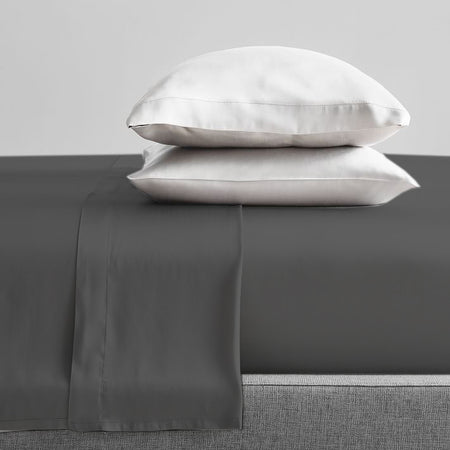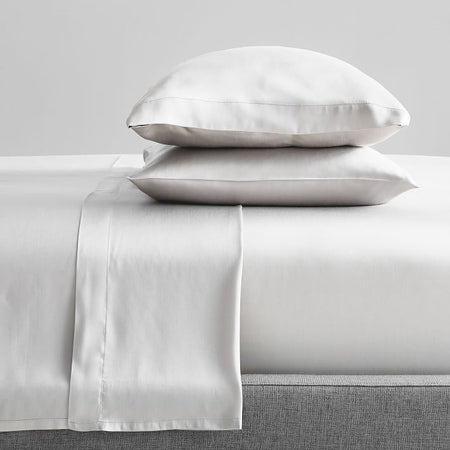Almost everyone can fall asleep faster with the right kind of sleep sounds. This usually varies from person to person. Some people say they prefer complete silence, but if you've ever been in a soundproof room, you know that absolute silence is a disquieting experience. Indeed, some noises can be disruptive, but it depends on which sounds you've become accustomed to.
Today, we're going to take a look at some helpful sounds and relaxation techniques.

Circadian Rhythms and Sleep Science
We now have so much more knowledge about the quality and quantity of sleep we need. Some of the best universities in the world devote considerable resources to improving our sleep.
Soothing Sounds Promote Relaxation
During the night, we go through several stages of sleep. During more profound sleep, normal noises, even if they're relatively loud, won't disturb our sleep. But, unfortunately, even the softest noises can be disturbing when we don't fall asleep immediately and start worrying about not falling asleep. One way to remedy this is to use soothing sounds that promote relaxation.
White Noise
Any noise, like a hum or a faint buzz that remains at a low volume, can serve as white noise. Some people like the sound made by a fan or mimicked by a smartphone app. The gentle whirr of a forced air furnace or central air conditioning is a popular form of white noise. This steady stream of low-level noise can mask more random and disruptive noises that may occur while you're trying to sleep.
Ocean Surf
The rhythmic rolling of waves upon the shoreline has a calming effect. It also does an excellent job of covering up other noises. There's something about the sound of waves that reminds people of the timeless order of nature.
A Babbling Brook And Raindrops
Rainy days are perfect for sleeping and sleeping in. The pitter-patter of gentle splashing is soothing for the mind and body.

The Great Outdoors
If you fondly remember sleeping under the stars during a camping trip, you can replicate these sounds in your bedroom. Crickets can be calming to some people and terrifying to others. If you have a sleeping partner, check with them first.
Soft Music
Although not many would choose Acid Rock to lull them to sleep, music can help you relax and allow your mind to rest long enough to slip into a deep slumber. Classical music and soft rock are two of the most popular genres.
Calm, Soothing Voices
This one may have become a favorite when you were a baby, and a parent would read to you at bedtime. Stay away from the news. Instead, search for a monotone lecture that you will not be interested in. The more boring, the better.
Find Your Favorite Sleep Sounds App
Take a few moments to search for an app that gives you a choice of different sleep sounds. Some better apps will let you fine-tune the sound to your specific tastes. Click here for android apps. Apple users can click here.
Fall Asleep Faster With Relaxation Techniques
- Breathe in through your nose. Mouth breathing can become a habit. It might start with a stuffy nose because of a cold or allergies; sooner or later, we start breathing through our nose. Over time, this can affect the quality of your sleep.
Try it for a few minutes a night when you first lie in bed. Focus on breathing in and out through your nose. If you keep at it, you'll feel more relaxed, and falling asleep will be easier.
- Practicing meditation helps. It doesn't matter which kind of meditation you prefer. All of them can help you relax. Many people meditate for a few minutes a couple of times a day.
First, try meditating for a few minutes about one hour before your bedtime. Meditating regularly can condition your mind and body to begin to wind down so that falling asleep will be easier.
- Expressing gratitude at bedtime. Anytime you can take a moment or two to ponder those things in your life for which you are thankful can be calming. Going through a mental list just as you settle into bed can calm your mind and body.
Deep Breathing Helps You Feel Sleepy
There are several different kinds of deep breathing. One of the most popular is Diaphragmatic Breathing. Some people know this as belly breathing. Studies show this kind of breathing before bedtime or once in bed can slow down your mind and body. Slow breathing signals to your body that it's time to wind things down.

People Who Have Trouble Falling Asleep
Some people have the occasional trouble falling asleep, and this can be normal. However, if you find yourself struggling to fall asleep, you might have a sleep disorder. If you're not sure, seek out some medical advice.
There might be other factors involved, like being overweight, lack of exercise, or smoking. Obstructive Sleep Apnea is a common condition and many find relief by using a CPAP to help them maintain their oxygen levels through the night.
Improving Sleep Quality With a Sleep Expert
Once you've had some time to investigate what sort of sounds will help you fall asleep and stay asleep, don't stop there. Take a holistic approach to your sleep. Find out what other factors could be hindering your sleep and what steps you can take to improve the quality of your sleep. Ask yourself if your room is dark enough and if a lower temperature during the night might help.
One of the key considerations is the bed frame and mattress you have. Do they match your sleep profile? Would an adjustable bed frame be more comfortable for you so that you can elevate your legs? Does your mattress perform motion isolation well, or does it feel like a bounce house when someone gets out of bed?
The sleep experts at The Bedding Mart would be happy to review your sleep needs and what can be done to help.






















